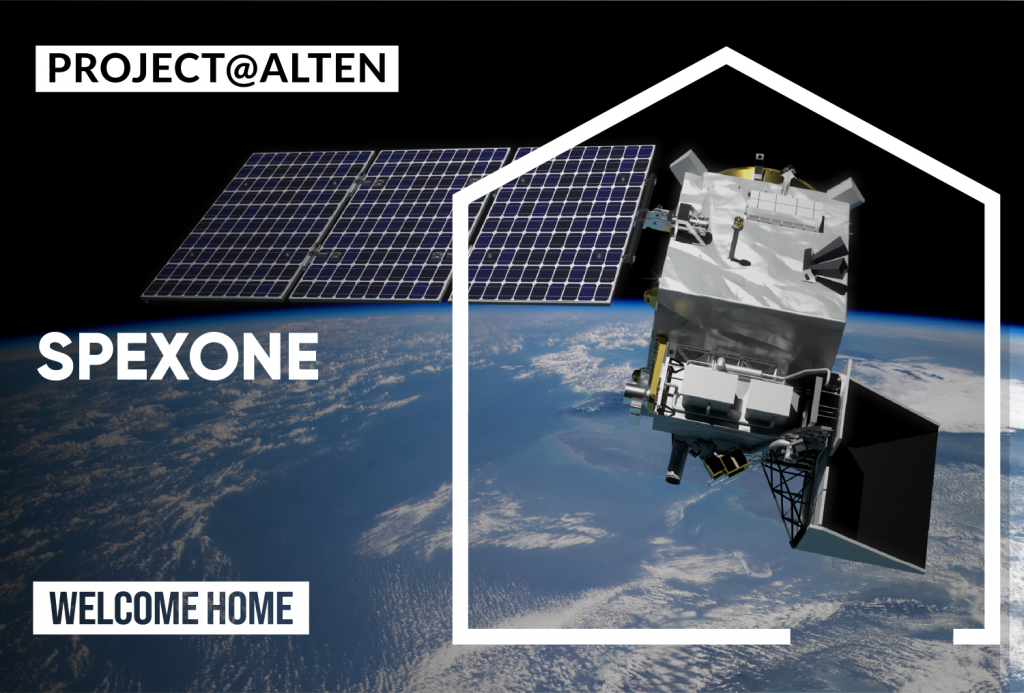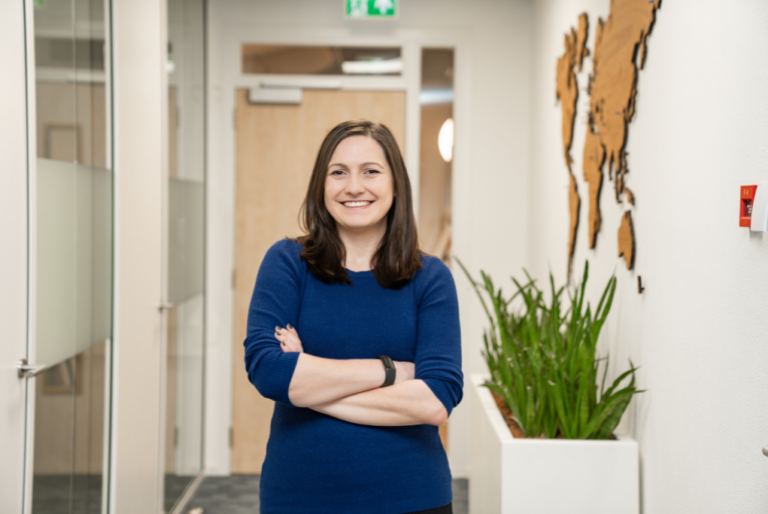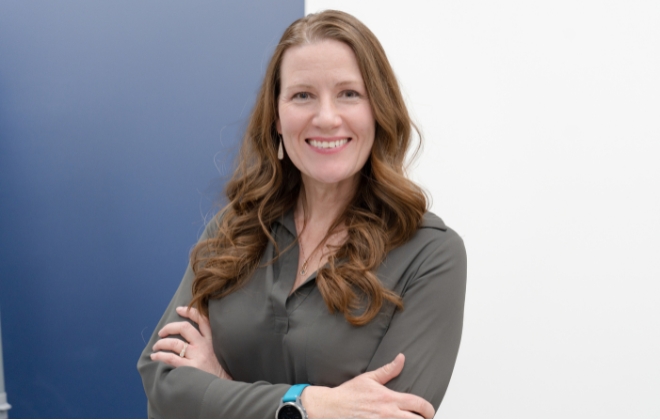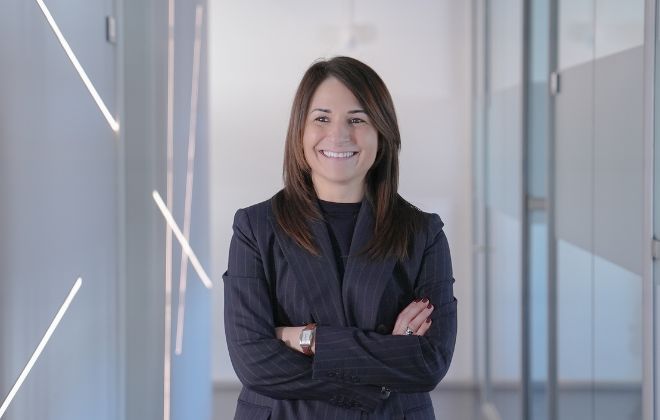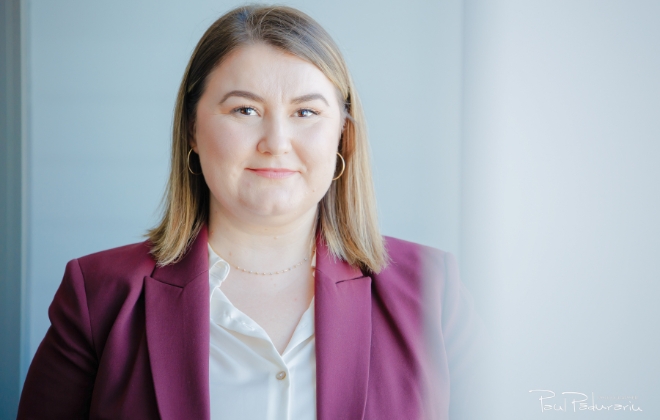Both Anna and Gokhan have worked on a very interesting project for SRON: SPEXOne. This is a spectropolarimeter that will be launched on NASA’s satellite PACE, together with other instruments. Anna has worked for this project from April 2019 to December 2020 and Gokhan worked here from December 2020 to March 2021. Both have plenty to tell about this ‘spacious’ project. In this double interview both consultants tell all about their work experience. Could you please describe the company you worked for?
Anna : “The SPEXOne project is a joint project between SRON and Airbus Defence and Space Netherlands. For the project, I worked full time at the space company in Leiden. Here all employees are very passionate and knowledgeable about the space subject. It was very motivating for me to see their passion for the job, which was contagious.”
Gokhan : “I also worked at the project for SRON. They are involved in the development of advanced technology in space instruments. They use the developed technology to pursue astrophysical, earth science and exoplanetary research. As a national expertise institute SRON advises the Dutch government and contributes to the national contribution concerning the explorations in space related science fields.”
Could you please describe your project? Anna
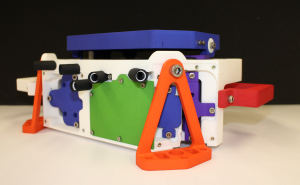
Gokhan : “The company aims to deliver a space instrumentation device to NASA for particle density measurement in space which has data acquisition on board involving an advanced embedded system. My focus in the project was on the implementation of application firmware on the SDRAM of the system which had been running on the flash of the CPU. Our team was able to run the application on SDRAM with the modification of software structure and the implementation of a CPU specific bootloader. Finally, we delivered all the relevant tests so they could test if everything worked and the code was reliable.”
What did your daily work entail?
Anna : “I was responsible for the software testing of the instrument computer (ICU): verifying that the data produced by the instrument is correctly transmitted to the spacecraft and that the instrument can perform all operations it is meant to. This entailed creating test procedures, implementing, executing and reporting them. In June 2020 I was appointed the role of Operations Engineer on top of the already existing software testing role. This allowed me to get to know the instrument more in detail (both software and hardware). At the end of my assignment I was responsible for writing the instrument user manual, containing all the information on how to use the instrument and what to do in case of failures.” Gokhan : “My day usually started with discussing further steps that needed to be taken. The rest of the day I used to plan the requirements and realizing them. Unfortunately, there was only one real working device which had to be shared with more people. This meant that on some days it took us longer to debug the device and add features to the firmware.”
What did you find the most challenging?
Gokhan : “The biggest challenge I encountered was the availability of the real device to work on to prepare the firmware.” Anna : “The first couple of months were very challenging for me since I got a lot of new information (especially a lot of acronyms), that was necessary for me to catch up with the team. After the initial period of getting to know the project I could perform much better. Towards the end of the project, when I had more responsibilities, I sometimes felt pressure to give results in set amounts of time and I had to work very hard to obtain them. I would say that that was a good type of challenge, keeping me stimulated and productive through the last months.”
What did you like most about the project?
Gokhan : “Having made a contribution to such a technologically advanced project which will be implemented in space.” Anna : “Having worked for the project for a quite consistent amount of time, I loved seeing the instrument being created, starting from some lenses and mirrors for the mechanical part and a couple of breadboards for the digital part and arriving to a full functioning instrument able to produce high quality digital images. Each small part of the instrument required the expertise of many engineers with different backgrounds, and I was impressed at how each person’s contribution was vital for the success of the project.”
Was the project in line with your expectations?
Anna : “This project was very interesting for me, coming from an aerospace engineering background. Most of the topics were new to me since I haven’t studied space engineering and the instrument sector being quite specific. Nonetheless I found what we did very stimulating and challenging in a positive way. I did not know what to expect from the project since it was my first ever assignment as a consultant, so I mainly learnt by doing on the go. Of course, certain subjects I studied at university helped me understand the used disciplines in the project more easily (electrical and thermal engineering for example).” Gokhan : “I have a background in image and signal processing, and I have been working on embedded projects after my studies, which helped me greatly in the assignment. My Business Manager had informed me about the project beforehand and I was eager to pick up the challenge.”
What do you think of your work as a consultant in general?
Gokhan: “As a consultant I found the project very interesting since it addresses a problem in an advanced application intended for a satellite application. I also learned a lot from the project. Prior to the project, I was not familiar with all the details of complicated bootloaders for a MPU. During the project I learned a lot of new things about low-level programming.”
Anna : “I am satisfied with the work that I did at this project. I was presented with a lot of new information, programming languages, software and tools and I could adapt quite quickly to the way of working, learning something new every day. I think it was a great project for me that allowed me to grow a lot; both as a tester and as an operations engineer, and I know my team was also satisfied with my work, according to the final client evaluation.”
Are you interested in what interesting project ALTEN can offer you? Please click here .
Would you like to know more about the space projects ALTEN is involved with, please click here



